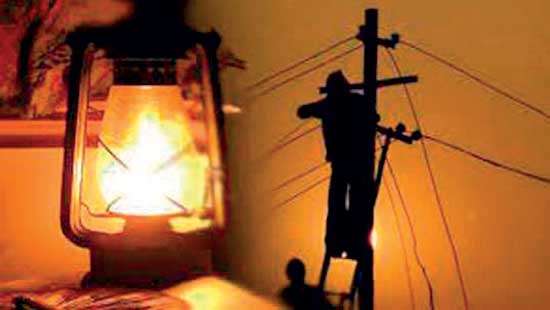Reply To:
Name - Reply Comment


In order to ensure the implementation of an effective tariff revision, which sustainably addresses Sri Lanka’s energy requirements, the Ceylon Chamber of Commerce (CCC) submitted suggestions and recommendations on the proposed electricity tariffs to the Public Utilities Commission of Sri Lanka (PUCSL) this week.
In a statement to the media, the CCC said the observations address vital issues such as the accuracy of costs, power cuts, reasonableness of costs, financial independence of the Ceylon Electricity Board (CEB) entities, renewable energy, cost of energy and service for categories, fixed and variable costs, cross-subsidies, price elasticity and tariff principles required.
The proposal was formulated by the Energy Sector Committee of the CCC, after careful analysis of the proposed tariffs and recommended feasible courses of action to ensure an effective tariff structure is implemented. The submission was twofold, comprising of the observations and recommendations. As per the recommendations made by the committee, the tariff methodology calls for annual revisions. However, in the current context, this may need to be revised every six months, the CCC said.
“This is especially so due to the tariff being artificially low compared to cost, which is backward looking. 1H 2023 costs are significantly higher than 1H 2022 costs, due to fuel/exchange rates.
Therefore, the Energy Sector Committee’s comments reflect this and future tariff filings based on prior observations submitted as well,” the CCC said.
The CCC in its proposal called on the PUCSL to accommodate four key changes as a precondition to the tariff increase. The suggestions were to have in place a proper operation of Bulk Supply Transaction Account (BSTA) and financial independence of the CEB generation and distribution licensees, to have a financially independent Power Purchase Agreement (PPAs) established for the CEB generation plants and avoidance of artificial subsidies, to initiate the Dispatch Audit process and to gazette a new and economically feasible NCRE tariff for SPPAs and rooftop solar systems as the reason for rapid electricity price hikes is the lack of adequate renewable energy and a new and economically feasible NCRE tariff. The CCC also requested the PUCSL to ensure certain conditions are met before any further tariff increases are proposed. The conditions include implementing all recommendations of Deloitte with respect to the dispatch process, having the Dispatch Audit completed for a minimum period of two years (at minimum 2020, 2021), having the heat rate revisions incorporated into all PPAs, moving the tariff process to the transmission licensee finance team, headed by finance/economist professionals and to have a comprehensive cost of service and cost of energy study carried out for each consumer category, backed by actual data.
Further, the CCC said the best way to protect manufacturing and service industries is to allow direct power purchase agreements from renewable energy producers. “Amend the act to enable the same and the PUCSL to work with a Transmission Licensee to create an equitable mechanism,” it said. While the power regulator must step up efforts to fast-track renewable energy implementation, which is the only way to reduce costs to the consumers and make electricity affordable, the CCC asserted the need to complete the unbundling of the CEB and the creation of an Independent System Operator.
It also stressed the need to develop a national consumer tariff policy that would articulate how costs are allocated and the policy on cross-subsidies.